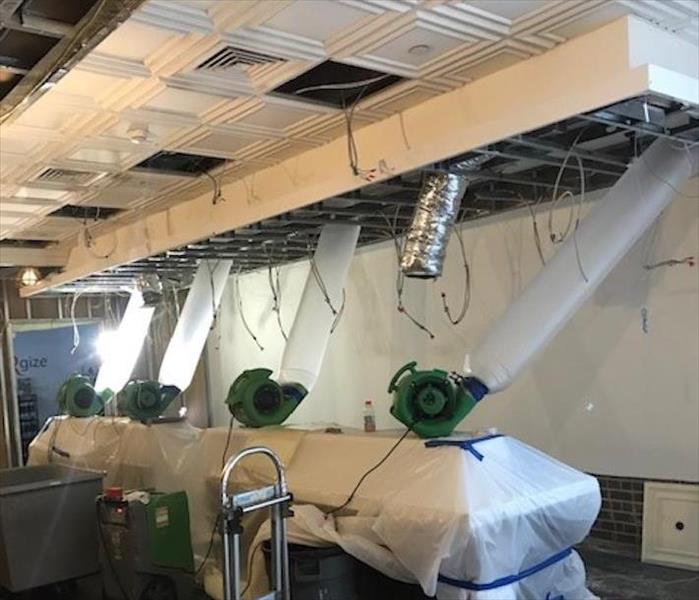After Technicians Remove Excess Water, How Do They Dry My Home?
10/5/2020 (Permalink)
 HEAT-Heat, Evaporation, Air Movement, and Temperature formula works for SERVPRO water mitigation in Yorktown Heights commercial and residential sites
HEAT-Heat, Evaporation, Air Movement, and Temperature formula works for SERVPRO water mitigation in Yorktown Heights commercial and residential sites
SERVPRO Professionals Create a Goal and Drying Strategy for Your Yorktown Heights Home
After a water leak from a kitchen or bathroom in your Yorktown Heights property, simply removing excess water with a shop vac and old towels does not mitigate secondary damage from the increased moisture. It is critical to understand the multi-pronged approach to adequately drying your home. When faced with visible damage, homeowners do not always understand the importance of drying the impacted area to preloss status.
Does Successful Drying Have to Include Extraction?
SERVPRO requires the removal if standing water is present
Extraction is one of the essential components for your water mitigation project in Yorktown Heights. Without proper extraction, you are facing long-term issues such as compromising drywall and flooring. The more time spent removing water from your home with portable or truck-mounted extraction equipment, the faster the drying process. Truck mounts can extract hundreds to thousands of gallons each day, while standard dehumidifiers only remove 30 gallons a day.
What are the Key Factors for Drying?
- Temperature: The optimal drying temperature ranges from 70° to 80°. Anything above 85° can force too much moisture into the air, extending the drying time.
- The amount of water vapor: The more time technicians spend extracting water from the impacted area, the shorter the dry time. It pays to extract because any remaining moisture requires evaporation, then dehumidification.
- Humidity: Too high relative humidity (RH) extends the dry time. Ideal RH is 30% to 50% anything over that increases dry time. Technicians control humidity with dehumidifiers, negative air pressure, and heaters, including exterior fuel generated furnaces
- Air Movement: Bringing warm, dry air into the impacted area with an air mover while pushing out damp air speeds up the drying process.
For 24/7 Assistance following a water leak, contact SERVPRO of Northern Westchester County at (914) 241-8100. We make it, "Like it never even happened."






 24/7 Emergency Service
24/7 Emergency Service